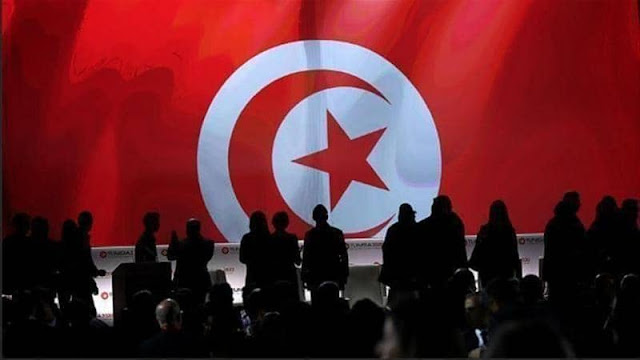
Tunisia .. Secular Bourguiba or Brotherhood of Ghannouchi

Tunisia .. Secular Bourguiba or Brotherhood of Ghannouchi
Tunisia, which witnessed a political transformation since the outbreak of the so-called Jasmine Revolution in 2011 and which led to the overthrow of the regime of Zine El Abidine Ben Ali, has known multiple political turns during the past ten years. Tunisia has set as one of the criteria for the future of the region in terms of the political peculiarity of this country in the Arab world.
The Tunisian parliament's overthrow of the government of Habib El-Gamli and before the Zakat law only confirmed the severity of the conflict over the political identity of this country, which many observers see as an indication of the future of countries that have experienced severe political turmoil during the past years.
Bourguiba, Tunisia
Tunisia views Habib Bourguiba as the founder of the modern state after he put the country on a political path dependent on liberalism through a national constitution that relied on granting civil rights to all societal strata.
Bourguiba had a political discourse that was more and more compatible with the requirements of development, for various sectors of Tunisian society. It is known historically that the Tunisian political movement was not only a political liberation movement, but rather had a special program for work in the cultural and social fields based on that of the heritage of the reformist reform movement He has been in Tunisia since the time of Khair al-Din al-Tunisi, and the pioneer of the liberation of Tunisian Arab women, al-Tahir al-Haddad, who was met with extreme hostility on the part of the traditional olive establishment, conservative social groups, and the backward values and principles of traditional society.
Habib Bourguiba drafted a constitution based on the secularism of the state, and after it, Tunisia remained a political stereotype that was considered a unique model of progressiveness, so that with the post-revolution the Tunisian people will still adhere to the constitution.
Al-Nahda as an arm of the Brotherhood
The movement of religious orientation entered the political equation after the revolution and the years witnessed a conflict between it and civil society. The positions of the Nahda movement changed in sustainable attempts not to cut off Mu’awiyya’s poetry with the political system, and obtained the position of prime minister and was able to influence the decisions of the presidency during the fair period of Marzouki. .
Like all political Islam groups in the Arab world, the Ennahda movement has brought out so-called intellectual reviews in an attempt to present itself as a civil political party for political competition.
Tunisian observers stress that the emergence of the Ennahda movement contributed to the increase in the number of Tunisian extremists in terrorist groups such as ISIS and Al Qaeda, and this is explained by Director of the Research and Development Center Jalal Al-Warghi as an indulgence from the Ennahda movement that contributed to the emergence of these numbers of extremists.
The hammer is by Ghannouchi
After the late President Essebsi, the Tunisian elections produced a different map in the Tunisian political scene. The slight majority of the Ennahda movement led its president Rashid Ghannouchi as Speaker of Parliament, and Ennahda tried to pass a government loyal to it that did not succeed in obtaining the confidence of the people's representatives.
While Tunisians fear a change in their constitution and political future, liberal political forces seem able to preserve the country's gains over the past decades, yet Ghannouchi’s visit to Turkey and his meeting with President Erdogan raise concerns for the Tunisian future.
Tunisia .. the dimensions of the identity struggle
The conflict between political forces is reflected in the economic situation, which remains the factor affecting the lives of individuals. As the people adhere to the national state and its gains, the conflict between the forces of political Islam and civil society will continue to put the most pressure on economic life.
The Tunisian political struggle is expected to receive direct nutrition from Turkish President Erdogan. In addition, the impact of the Libyan crisis will also put pressure on the Tunisian political situation.
Between this and that, the national powers will have to reinforce the civil state’s discourse, protect the constitution, and reassess the last political stage to fill the holes from which the Muslim Brotherhood infiltrated and plunged Tunisia into more economic failure that was the direct cause of the revolution against the regime of Zine El Abidine Ben Ali.
